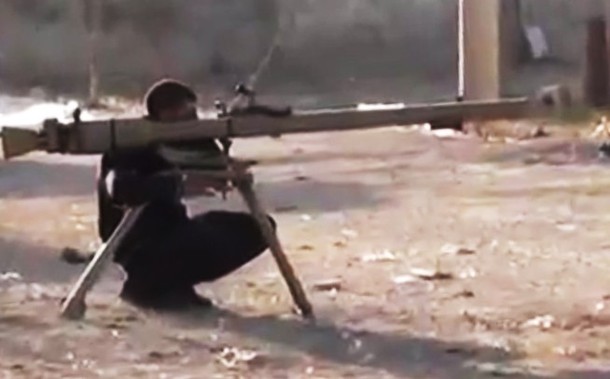
From C. J. Chivers and Eric Schmitt, New York Times: Saudi Arabia has financed a large purchase of infantry weapons from Croatia and quietly funneled them to antigovernment fighters in Syria in a drive to break the bloody stalemate that has allowed President Bashar al-Assad to cling to power, according to American and Western officials familiar with the purchases.
The weapons began reaching rebels in December via shipments shuttled through Jordan, officials said, and have been a factor in the rebels’ small tactical gains this winter against the army and militias loyal to Mr. Assad.
The arms transfers appeared to signal a shift among several governments to a more activist approach to assisting Syria’s armed opposition, in part as an effort to counter shipments of weapons from Iran to Mr. Assad’s forces. The weapons’ distribution has been principally to armed groups viewed as nationalist and secular, and appears to have been intended to bypass the jihadist groups whose roles in the war have alarmed Western and regional powers.
For months regional and Western capitals have held back on arming the rebels, in part out of fear that the weapons would fall into the hands of terrorists. But officials said the decision to send in more weapons is aimed at another fear in the West about the role of jihadist groups in the opposition. Such groups have been seen as better equipped than many nationalist fighters and potentially more influential. . . .
[O]ne senior American official described the shipments as “a maturing of the opposition’s logistical pipeline.” The official noted that the opposition remains fragmented and operationally incoherent, and added that the recent Saudi purchase was “not in and of itself a tipping point. . . .”
The official added that Iran, with its shipments to Syria’s government, still outstrips what Arab states have sent to the rebels. . . .
While Persian Gulf Arab nations have been sending military equipment and other assistance to the rebels for more than a year, the difference in the recent shipments has been partly of scale. Officials said multiple planeloads of weapons have left Croatia since December, when many Yugoslav weapons, previously unseen in the Syrian civil war, began to appear in videos posted by rebels on YouTube. . . .
Officials familiar with the transfers said the arms were part of an undeclared surplus in Croatia remaining from the 1990s Balkan wars. One Western official said the shipments included “thousands of rifles and hundreds of machine guns” and an unknown quantity of ammunition.
Croatia’s Foreign Ministry and arms-export agency denied that such shipments had occurred. Saudi officials have declined requests for interviews about the shipments for two weeks. Jordanian officials also declined to comment.
Danijela Barisic, a spokeswoman for Croatia’s Ministry of Foreign Affairs, said that since the Arab Spring began, Croatia had not sold any weapons to either Saudi Arabia or the Syrian rebels. “We did not supply arms,” she said by telephone. . . .
An official in Washington said the possibility of the transfers from the Balkans was broached last summer, when a senior Croatian official visited Washington and suggested to American officials that Croatia had many weapons available should anyone be interested in moving them to Syria’s rebels. . . .
Washington was not interested then, the official said, though at the same time, there were already signs of limited Arab and other foreign military assistance. . . .
By December, as refugees were streaming over Syria’s borders into Turkey and Jordan amid mounting signs of a wintertime humanitarian crisis, the Croatian-held weapons were back in play, an official familiar with the transfers said.
One Western official familiar with the transfers said that participants are hesitant to discuss the transfers because Saudi Arabia, which the official said has financed the purchases, has insisted on secrecy. (photo: AP)
Image: ap%208%2016%2012%20Homs.jpg
